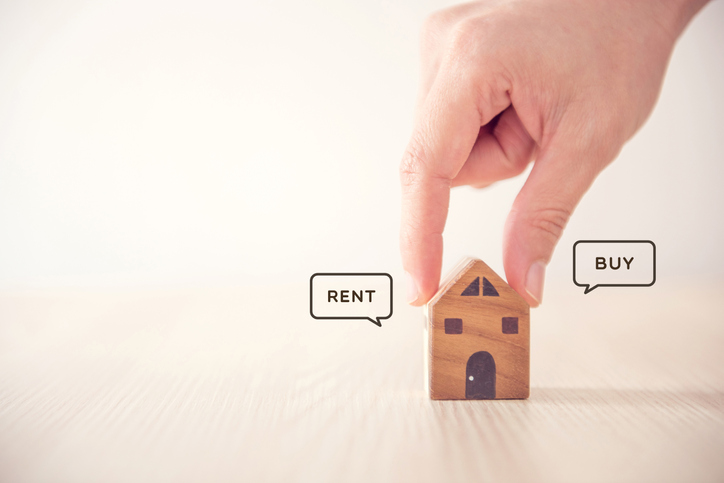
Should you buy or rent? Homeownership has long been touted as the ultimate goal, a marker of stability and financial responsibility. But more and more Americans are considering being life-long renters.
How do you know which one’s for you? Here are a few things to take into consideration.
Myths about buying versus renting
Buying a home is often seen as a rite of passage into adulthood. Having a mortgage meant that your priorities were in order. Although taking out a mortgage is definitely a huge responsibility, renting doesn’t have to be seen as a sign of failure.
Renting is no longer seen as a sign of poor finances. Many financially stable individuals are choosing to rent for the freedom and flexibility it provides.
Likewise, there’s also the notion that paying rent is tantamount to throwing money away, or making someone else wealthy. There are two ways of looking at this.
Rent money isn’t money gone to waste, since it gives you shelter and physical safety in return.
However, renting doesn’t allow you to build equity the way homeownership does, and it does line someone else’s pockets with your hard-earned money.
There’s also the idea that your living-related expenses will screech to a halt once you buy a home – the opposite is true.
Aside from monthly mortgage payments, you’ll have to shoulder the costs of repairs, maintenance, utilities, property taxes, homeowners’ association (HOA) fees, insurance, and more.
In some ways, it’s much cheaper to rent, since property managers take responsibility for repairs, maintenance, and taxes.
The costs of buying versus renting
The main difference between the two is the upfront costs they entail.
You’ll need to produce a hefty down payment when purchasing a home – buyers put 20% down on average, although certain loans, such as the Federal Housing Administration (FHA) and Department of Veteran Affairs (VA), loans allow you to put as little as 5% down.
Other costs include closing costs and premium mortgage insurance (PMI), depending on how much money you out down.
Even if you had money in the bank for the down payment and closing costs, however, you’ll have to decide if there are other things you’d rather use the money for, such as setting up a business or traveling internationally.
When renting, the upfront costs are much smaller – in most cases, landlords only require two month’s advance and a deposit fee.
Your credit history
According to The Balance, four late loan payments on your record can disqualify you from getting a home loan. Likewise, a credit score lower than 620 will prevent you from getting good interest rates. The same goes for a high debt ratio of 50% debt ratio, which can disqualify you from a mortgage.
If you want to take the step from renter to homeowner, you can build your credit score by consolidating paying off debt. This include student loans, car loans, and credit card debt.
Don’t miss any payments and avoid making big ticket purchases, such as a new car or laundry machine, in the months leading up to your loan application.
If it isn’t possible to get rid of debt, then consider renting for a bit longer.
Your long-term plans
Debt-free and financially stable? That’s good, but take your long-term plans into consideration before applying for a home loan.
If you see yourself relocating for work within the next few years, it might be better to rent. The same goes if you see yourself staying in the city on a temporary basis. Many renters want to keep their housing options open in case they get a better job offer out of state, or in case they want to live overseas.
But if you’re more or less settled, go for it. Homeownership will only strengthen the sense of stability and rootedness you’re experiencing. It’s also ideal if you see yourself getting married, having children, or adopting pets in the near future.
Ready to own a home? King Homes and Land Realty is here to assist you. Contact us today to start the search.
